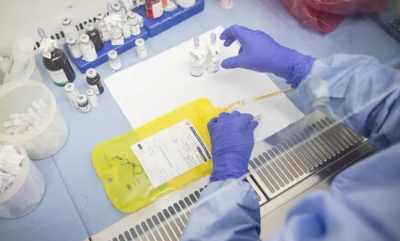A team of researchers from Cedars-Sinai Medical Center in the United States has identified a series of cellular reactions that lead to the activation of inflammation in the human body. The study is expected to aid in classifying different types of inflammation associated with infections and diseases affecting humans. Through their research, the scientists gained a broader understanding of the steps that drive the body to secrete the protein "IL-1 beta," which is produced in response to various inflammations.
Researcher Andrea Wolf, a specialist in biomedical sciences, explains: "When the body's immune system recognizes an external threat, such as bacteria or viruses, it releases white blood cells to encapsulate and attack this foreign element, leading to swelling, redness, warmth, and pain in the tissues. In the case of a healthy body, these symptoms tend to resolve after a while. However, for some individuals, the inflammatory phase may persist, known as chronic inflammation, which can damage healthy cells in the body and may lead to serious diseases such as type 2 diabetes, certain heart diseases, and depression."
For his part, David Andershal, head of the biomedical sciences department at Cedars-Sinai, notes that while inflammation is often crucial for a proper immune system and overall health, prolonged inflammation can be detrimental to the body.




